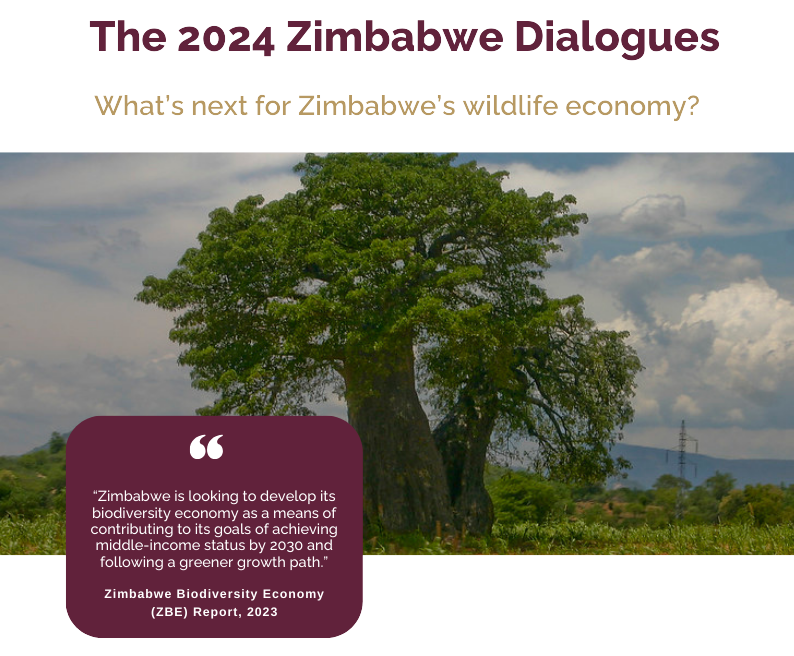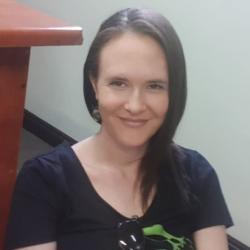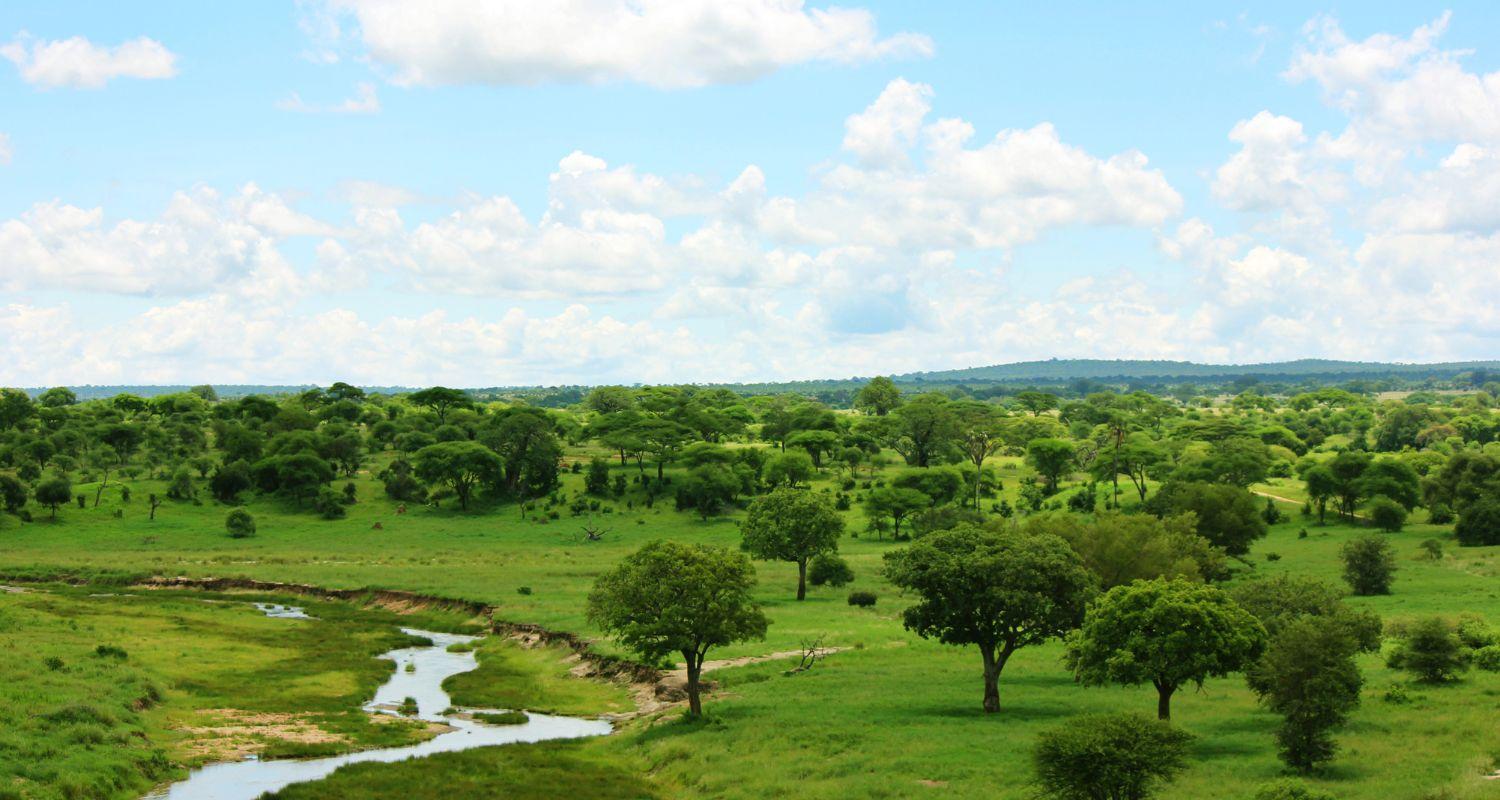
AWEI Updates May 2024
A WORD FROM THE DIRECTOR
As the Wildlife Economy Institute (AWEI) continues to grow and expand its reach, we have decided to produce an occasional short newsletter to update you on key activities and outputs. Welcome to the AWEI Updates May 2024 edition.
2024 is an exciting year for the wildlife economy in Africa and for the work of the Institute. The Southern African Development Community has launched its Wildlife Economy Framework and South Africa has launched its Biodiversity Economy Strategy. AWEI was invited to present at both launches and we look forward to contributing to their implementation. Across the continent, in response to the Global Biodiversity Framework (GBF) targets on the use of wild species, we are seeing an increasing interest in linking landscapes to livelihoods through the wildlife economy. In support of the GBF targets, we are hosting an online series of dialogues on the use of wild species in East Africa, and we will be engaging in wildlife economy discussions at the upcoming IUCN Africa Conservation Forum.
We are strengthening our capacity to undertake impactful research with our first doctoral student, Lydia Bhebe. We are also reaching out to the AWEI Community and beyond for papers to be presented at our Wildlife Economy Colloquium taking place at Stellenbosch University in early November. Working with our partners, including the Oppenheimer Generations Research and Conservation, the Atlas Network, the South African National Biodiversity Institute, and the Zimbabwe Environment Law Association, we are busy with several activities – preparations for the Oppenheimer Research Conference, developing our internal capacity to mobilise funding for our work, creating an induction course For South Africa's CITES Scientific Authority on sustainable wildlife trade, and exploring opportunities to scale up wildlife-based tourism in Namibia and South Africa. This is not to mention our ongoing research and engagements in the wild meat sector, wildlife enterprise development, and standards for wildlife harvesting and use. Be sure to visit our website for our latest articles, reports, and events. Please join us on social media – we are active on LinkedIn,X, and Facebook. Also, please contact us directly at any time at awei@sun.ac.za.
Dr Francis Vorhies, AWEI Director
2023 AWEI IMPACT REPORT
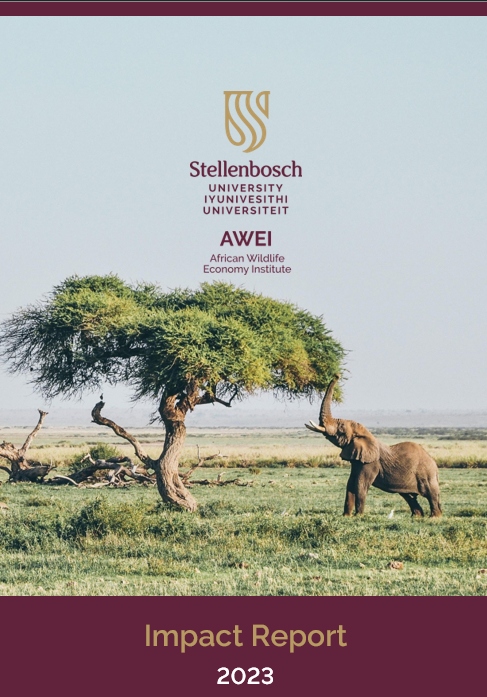
We are proud to announce the launch of our Impact Report. Discover the key outcomes of our thought leadership, stakeholder engagement, and capacity-building initiatives of 2023. From evolved thinking to strengthened pathways for sustainable trade, we're committed to driving positive change in the African wildlife economy.
READ OUR IMPACT REPORT
AWEI NEW DIALOGUE SERIES: EXPLORING EAST AFRICA'S WILDLIFE ECONOMY
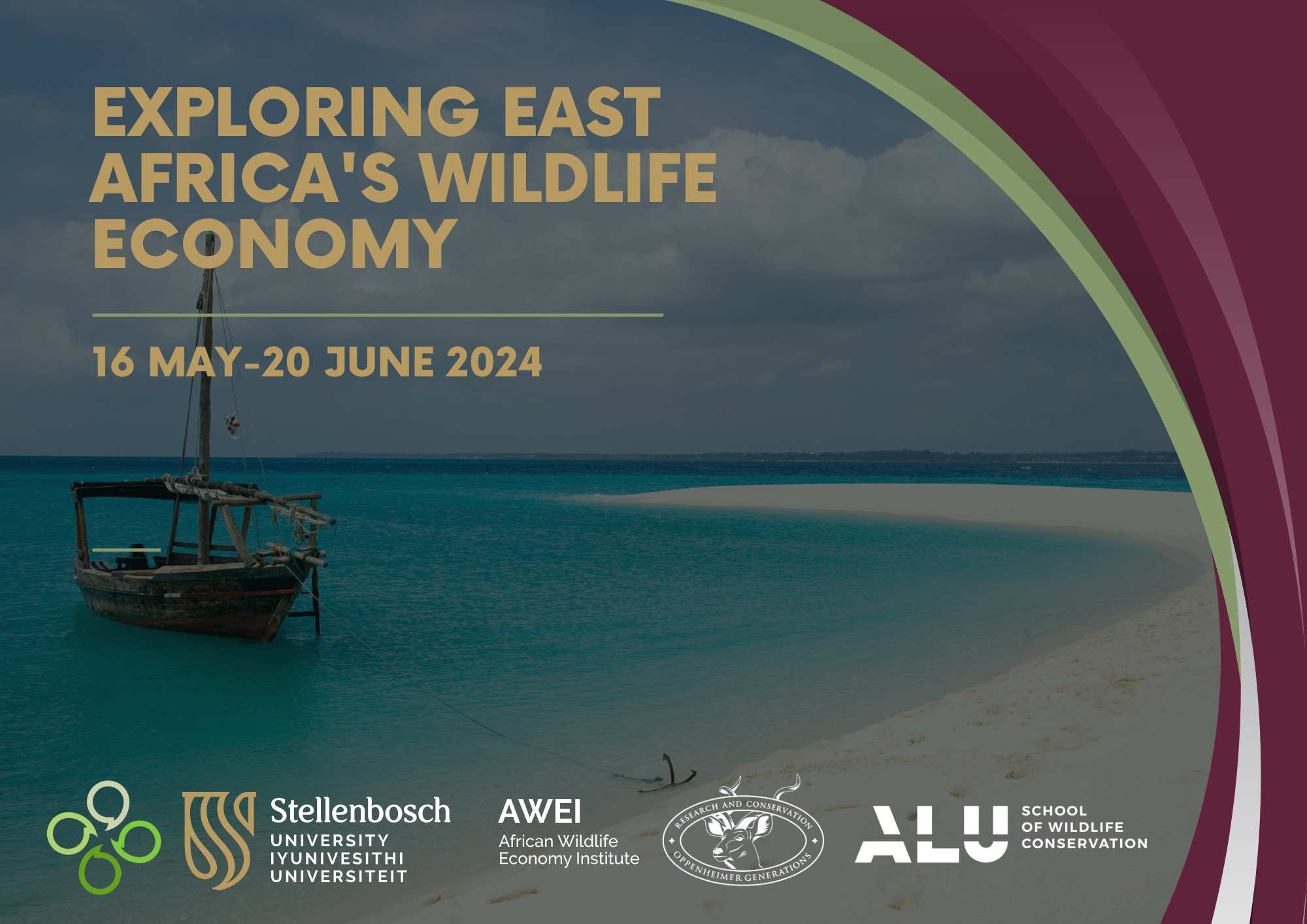
Across East Africa, people use wild species, and this use contributes to both conservation and human well-being. In this series, we will discuss various uses of wild species in East Africa’s wildlife economy. How are wild species being used in East Africa to provide benefits to people? What are the policy pathways for ensuring that the use of wild species is sustainable?
Diarise these dates:
Wild Food - 16 May 2024
Wild Oils - 23 May 2024
Wild Fuels - 30 May 2024
Wild Carbon - 6 June 2024
Wild Use Tourism - 13 June 2024
Wild Policy - 20 June 2024
REGISTER NOW
AWEI COMMENTS ON THE NATIONAL BIODIVERSITY ECONOMY STRATEGY

AWEI provided comments on the draft South African Biodiversity Economy Strategy published in March 2024. Our comments aimed to strengthen the strategy that was drafted to conserve South Africa’s biodiversity by delivering inclusive benefits to all through the sustainable use of the country’s wild species and the landscapes they live in.
VIEW COMMENTS
CALL FOR ABSTRACTS: WILDLIFE ECONOMY COLLOQUIUM
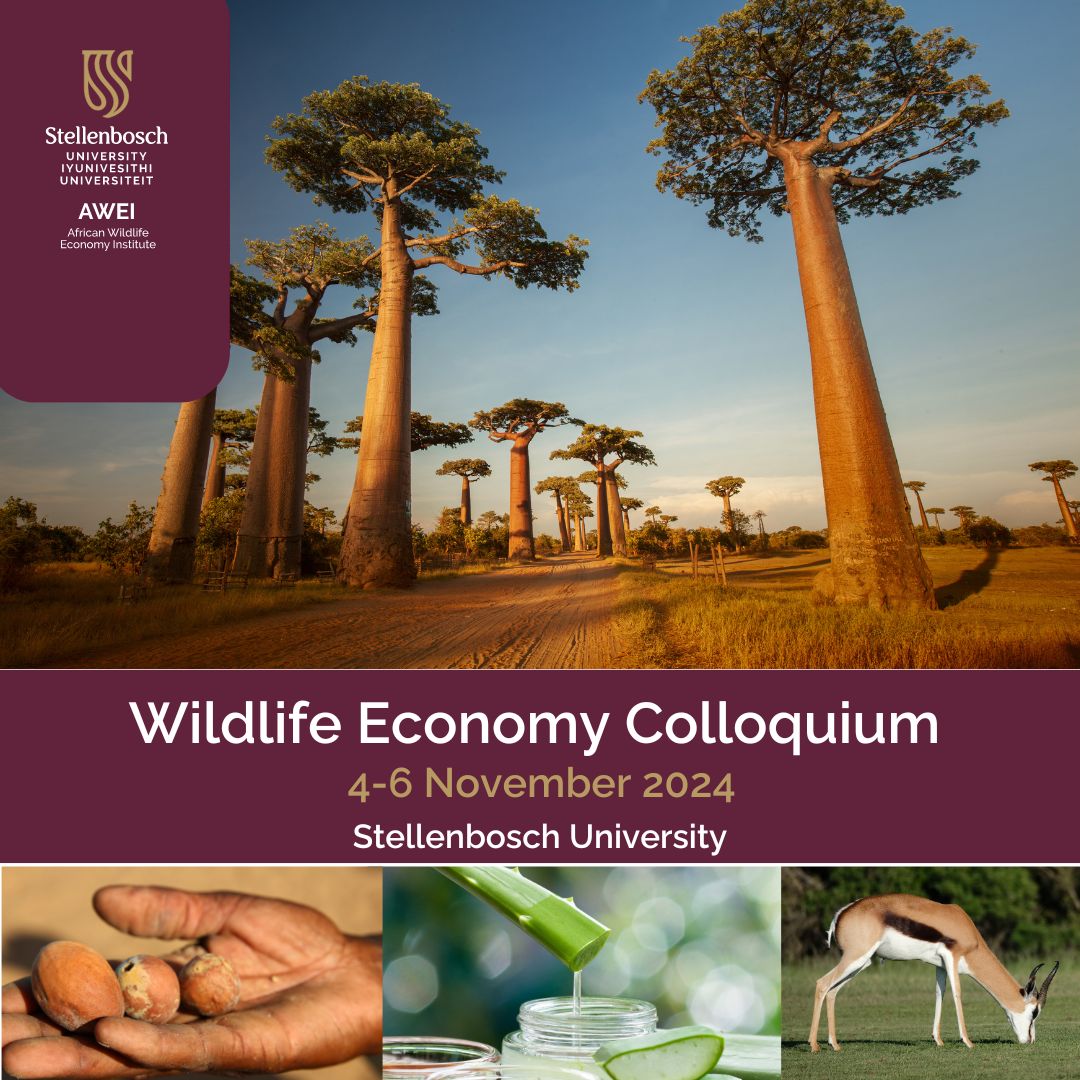
Join us as we bring together researchers, scholars, and experts to discuss their work and key issues and opportunities arising from the development of a sustainable and inclusive wildlife economy, with a particular focus on Africa.
![]() If you are interested in presenting, please submit an abstract. We will consider papers on any topic relevant to the wildlife economy in Africa.
If you are interested in presenting, please submit an abstract. We will consider papers on any topic relevant to the wildlife economy in Africa.
CALL FOR ABSTRACTS
ZIMBABWE WILDLIFE ECONOMY SERIES
In case you missed it, you can catch the recordings of our fascinating dialogue series that AWEI, in partnership with the Zimbabwe Environmental Law Association (ZELA), ShareScreen Africa, and Oppenheimer Generations Research and Conservation hosted on the research being done into the wildlife economy in Zimbabwe and the key outcomes of the Zimbabwe Biodiversity Economy Report published in 2023.
WATCH THE SERIES
NEW TEAM MEMBER

Lydia Beebe, AWEI's 1st PHD Student
AWEI welcomes Lydia Bhebe as our 1st PDH Student. Lydia's research explores the interconnected dimensions of human, animal, and ecosystem health within the game meat industry, to promote evidence-based conservation strategies and foster sustainable wildlife economies. Lydia hopes to empower individuals and communities to become active participants in conservation efforts and contribute to a sustainable future for all.
 MEET OUR COMMUNITY
MEET OUR COMMUNITY
LATEST CONTENT
Catch up with all the latest additions to our website
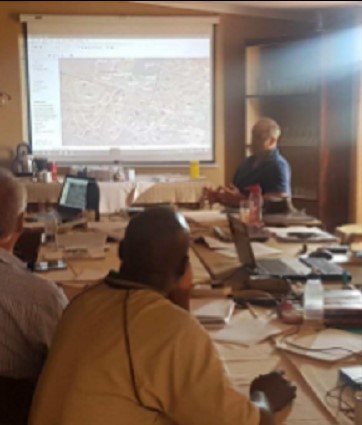 |
Collaborative governance models of wild product value chains for conservation and livelihood resilienceThapelo Brilliant Lebopa |
SA’s new biodiversity strategy is a key move away from colonial fortress conservationThompson et al. |
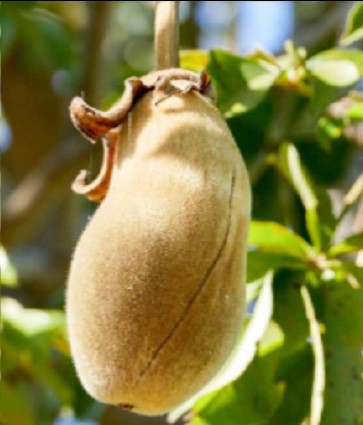 |
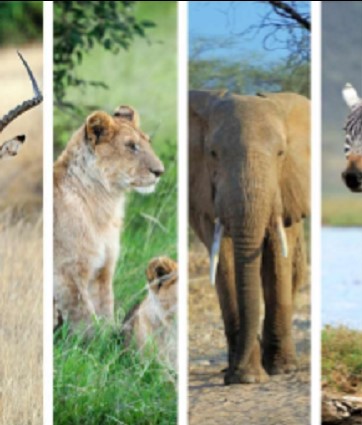 |
|
South Africa’s conservation model: why expanding the use of biodiversity to generate money is a good ideaDr Hayley Clements, Dr Matthew F. Child, and Alta De Vos |
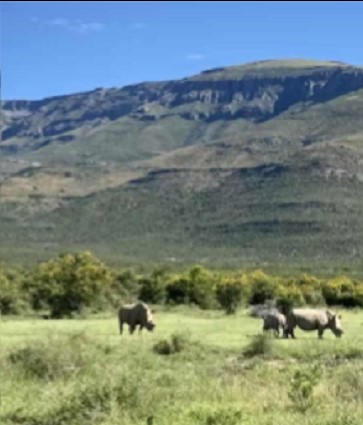 |
We support the free flow of information. Please share:
More content
-

What Foot and Mouth Disease-free means for South Africa’s game meat trade
Ms Lydia Daring Bhebe…Explore the latest developments in South African provinces achieving and maintaining Foot and Mouth Disease (FMD) free status…
Articles -

The world wildlife trade regulator is 50 – here’s what has worked and what needs to change
Daniel Challender…Most countries implement Cites, the Convention on International Trade in Endangered Species of Wild Fauna and Flora as…Articles -

Enabling Sustainable Wildlife Trade
Prof Francis VorhiesEnabling sustainable wildlife trade is a key policy measure for growing Africa's wildlife economy. In this respect, CITES…
Articles -

Has CITES become too complicated to be effective?
Prof Francis VorhiesGovernments agreed to the text of CITES in the 1970s, which is quite straightforward. However, the agreement’s implementation…
Articles -

From poachers to providers: Can Africa's wild meat market save wildlife?
Dr Wiseman NdlovuHave you ever considered how wild meat could be more than just a cultural staple but also a…
Articles -

As a fellow of the African Wildlife Economy Institute (AWEI), I am excited to attend the upcoming 3rd…
Articles -

A theory of change to improve conservation outcomes through CITES
Dr Michael 't Sas-Rolfes…Here we articulate the implied theory of change (ToC) underpinning the design and operation of CITES (Convention on...
2025Research -

Wild Meat Value Chain Integration Systems: Opportunities for Value Chain Formalisation and Scaling in Africa
Dr Wiseman Ndlovu…Establishing a legal, safe and sustainable wild meat sector promises to potentially reduce demand for illegally sourced meat...
2025Research -

AWEI's 2024 Wildlife Economy Dialogue Series
Ms Emily TaylorRediscover 2024: A year of insight and inspiration
In 2024, AWEI proudly hosted three ground-breaking dialogue series in…
Articles
Get updates by email
Through impactful research, stakeholder engagement, and professional development, AWEI is supporting the wildlife economy across Africa. Please subscribe for occasional updates on our work and forthcoming events.
Sign up for a quarterly dose of AWEI insights
In a complex and changing world, AWEI generates strategic ideas, conducts independent analysis on wildlife economies, and collaborates with global scholar-practitioners to provide training and expertise for biodiversity conservation, climate resilience, and inclusive economic opportunities in Africa.

